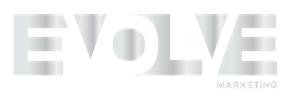The accounting industry has been significantly transformed by the rise in digital advertising and technology. Although the tax system and tax laws remain largely unchanged, tax processes have undergone a complete overhaul.
With the click of a button, many companies can now easily prepare taxes, organise invoices, and perform basic auditing tasks using the same app that is used for corporate and personal income taxes. Filing taxes has become practically automatic, eliminating the need for preparing tedious excel sheets.
However, the rise of highly efficient tax preparation and filing software apps has led to a challenging question for accounting companies: how can they effectively advertise their services when online applications have the potential to replace them altogether?
The answer lies in understanding how your target audience interacts with media, such as video, text-based content, short video reels, and documentaries. Additionally, it’s essential to know which platforms your audience uses most frequently and how to leverage those platforms to promote your services.
To help you advertise your accounting services in the digital age and reach potential clients, here are some ideas you can explore.
Updating Your Website
Your website is the first impression people get of your business online, and it’s also the most important and powerful marketing tool at your disposal. That’s why it’s crucial to ensure it’s well-designed, as it occupies the top spot on the list of tools for marketing your accounting services in the digital space.
When hiring a web design and development company, it’s essential to do thorough research and look for a team with diverse experience. Keep in mind that most people access websites through their smartphones, so it’s important to ensure that your website is mobile-friendly, responsive, and stable on all smartphone screen sizes.
Before publishing your website, make sure it’s up-to-date and contains relevant, helpful information that potential clients can use to make informed decisions about your accounting services. Also, ensure that this information is easy to find. If potential customers have difficulty finding your contact information and the services you offer, they’ll likely leave your website.
Get to the Top of Local Search Results
While your website is an essential marketing tool, it’s not the most challenging to implement. Publishing your website is only half the battle. The most challenging task is search engine optimisation (SEO), which involves ranking your website at the top of local search results for specific keywords. SEO helps maximise the number of visitors to your website by pushing it to the first page of search results.
While familiar SEO tactics can help you rank highly in local search results, setting up your Google Business Profile is also beneficial. Not listing your website in Google Business will cause your company to not appear in Google Map Pack. The Local Pack displays three Google Maps results when a user searches for local businesses.
This algorithmic interpretation provides the user with the best company pick that will solve the query at hand. For example, if a user needs to find a nearby restaurant, they can type keywords into the Google search box and get the top three business recommendations right in their area in the Google Map Pack.
Setting up your Google Business Profile requires that you have the accurate business hours, address and phone number for your business, logo as well as a photo of your business and the right business category for your establishment.
Start And Maintain A Blog
Building and maintaining a blog is a key way to maintain a strong online presence. Sharing relevant and valuable content with your target audience can help you establish yourself as an authority on your chosen topics. Regularly updating your blog can also increase your online visibility, signalling to search engines like Google that your website is a valuable source of information.
Long-form blog posts that exceed 2,000 words can be particularly effective in attracting traffic and building credibility. They allow you to dive deeper into topics that are most useful to your followers and potential clients.
WordPress is one of the most popular blogging platforms, accounting for 43% of the market and seeing over 7 million posts published daily.
Use Social Media Effectively
Using social media effectively can also help improve your site’s visibility. By sharing your content on social media, you can reach a wider audience and build relationships with your followers and potential clients. To do so effectively, it’s important to embed social media into your overall marketing strategy and share a variety of content beyond just blog posts.
Here are some tips for using social media effectively:
- Use social media to build relationships, not just to advertise your services.
- Share a variety of interesting and relevant content, including eBooks, whitepapers, case studies, webinars, and podcasts.
- Focus on one or a few social media platforms that your target market uses, and consistently engage with your followers on those platforms.
Maximising Email Marketing Strategies
Email marketing is a powerful tool for promoting products or services. Any email sent to a potential or existing customer can be considered email marketing, even if it does not directly sell the value you offer.
To maximise the effectiveness of your email marketing campaigns, you need to ensure that your emails are targeted, personalised, and relevant. This can be achieved through segmentation of your email list into different groups based on demographics, interests, and purchase history. By dividing your email subscribers based on set criteria, you can send relevant and targeted emails to each group, increasing the chances of better engagement with your brand.
Fortunately, email marketing tools such as Klaviyo, Hubspot, Mailchimp, and Zoho Campaigns are available online, which makes the work of email marketing much easier. When sending marketing emails, you don’t have to continuously push the purchase of your services. Instead, you can send subscribers something of value and use calls-to-action to encourage them to download an eBook, case study, or whitepaper relevant to their industry. Continuously test and optimise your email campaigns and observe how your subscribers respond to your efforts. Engage with those who decide to stay and find out what keeps them interested in your marketing list.
Utilising Paid Advertising
Paid advertising is an effective way to target groups of people who are actively searching for your services. Platforms like Facebook, Twitter, and LinkedIn offer tools for advertisers to review metrics and measure the effectiveness of their campaigns. However, paid advertising can be expensive, and it is not enough to reach your target audience.
To measure the success of your paid advertising, you may use different parameters depending on your company goals. For example, if your goal is to increase traffic, check the number of site visits or click-through rate from the date you start running the ad up to a certain date. If your measurement of success is purchases, review your conversion rate or return on investment (ROI).
In today’s digital age, accountants can take advantage of various advertising opportunities, from social media campaigns to search engine optimisation. Striking the right balance through continuous iteration and a good understanding of theory and practice can help you stay ahead in the business game for the long term.
Are you looking to explore the potential of online marketing for your firm ? Click here to gain access to our ROI Calculator and estimate the potential return on investment of our campaigns. Our team of digital marketing experts will also provide valuable marketing strategies to enhance your online presence.
Sign up to our Newsletter now to take your firm’s marketing efforts to the next level.




